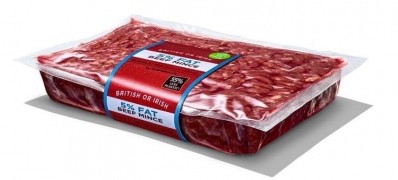FoodNavigator’s year in review: The most popular food and beverage stories of 2022

The food and beverage industry has faced an unprecedented couple of years. From the COVID-19 pandemic, through to supply chain challenges and – today – the energy crisis and war in Ukraine, supply chains and business models have had to show resilience in the face of extreme disruption. Unsurprisingly given this context, stories looking at issues around food safety and security proved popular reading in 2022.
But despite these challenges, innovation has continued to remain front-and-centre of the industry’s thinking. Developments in the fast-paced food tech world continue to push the envelope and scientific advances in our understanding of health and diet expand the boundaries of functional nutrition. Meanwhile, plant-based R&D, the protein debate and broader concerns linked to sustainability – and worries over greenwashing – also continued to dominate our pages.
Join us for a look back at 2022 through the lens of FoodNavigator’s most read and shared stories of the past 12 months.
The protein dilemma: Plant-based versus animal?
Stories examining innovation in plant-based products and new protein sourced remained hot topics in 2022. However, we are increasingly seeing push-back on the assumption that the plant-based category will shape the future of food, with questions being asked about the health and sustainability of animal- and plant-based products. Revisit our top five stories covering plant-based and conventional proteins.
- Plant-based brands accused of creating 'a category failure, maybe one of the biggest in food industry history'
- Study linking deaths to red meat ‘appears implausible’ and ‘lacks transparency’
- Plant-based innovators push back at ‘ultra-processed, ultra-unhealthy’ critique
- What’s it like to cook with Redefine Meat 3D printed plant-based steak? Marco Pierre White gives his verdict
- Precision fermentation: Is the world ready for animal-free dairy?
Food tech in focus
Protein is of course one hot topic in the food tech space, where innovative approaches and novel technologies are being developed to answer some of the biggest challenges faced by the food sector and the need to feed a growing global population within finite planetary boundaries. From cell cultured meat, to gene editing, precision fermentation and cellular agriculture, check the R&D that caught your attention as innovators work to reshape the food system.
- Creating fat from thin air: Start-up hopes to bring tropical fat replacement made using carbon dioxide and electricity to market in 2024
- Why the metaverse will matter to the food industry in 2022 and other megatrends to watch
- Nutritionally charged lettuce developed with CRISPR/Cas gene editing tech
- Lion burger? Tiger tacos? Meet the cell cultured start-up working in exotic meats
- Dairy grown in lettuce? Meet the start-up triggering protein, pigment, and aroma production in a greenhouse
Sustainable supply chains… and greenwashing fears
Answering the big sustainability challenges remained front-of-mind for FoodNavigator readers in 2022, with issues like plastics and production systems attracting their share of attention. One thing that was remarkable, however, was that for every story that made our most popular list touting a sustainable solution another was looking at what consumers and regulators have clearly identified as a cause for concern… greenwashing.
- Unilever pilots SAP blockchain tech for deforestation-free palm oil: ‘This will be transformational for smallholder inclusion’
- Study reveals nutritional benefits of regenerative agriculture crops
- Behind Nestle’s approach to sustainable packaging: ‘We want less and better packaging, and better systems’
- 'We’re fooled into believing that these companies are taking sufficient action': Nestlé and Unilever rebuff greenwashing accusation
- Is organic food really better for the environment?
- ‘This is an opportunity to re-invent flexible plastic’: PepsiCo to cut virgin plastic from its chip bags by 2030
Food safety, security and the geopolitical crisis
As the year progressed, Russia’s invasion of Ukraine made headlines around the world… and the impact was increasingly felt in the food sector. From spiking energy and raw material prices, to concerns over food safety and security, the current geopolitical situation has had a destabilising effect. Elsewhere, concerns over food fraud and high-profile safety scares demonstrated the need to remain vigilant – and the price that such crises exact on brands.
- Why the Ukraine conflict could spark ‘dangerous times’ for food prices and food security
- 'This is the time fraudsters kick in’: Food fraud warnings as sunflower oil runs dry
- ‘It is clear further inflation is still to come’: Higher food prices expected beyond 2023
- Ukraine war detonates EU food security debate, but will sustainability be collateral damage?
- From Nestlé’s Buitoni to Ferrero’s Kinder: High-profile scandals put European food safety in the spotlight
Nutritional science driving healthy innovation
In 2020, COVID-19 brought the link between health and diet to the fore. By 2022, as European economies continued to learn to ‘live with’ the disease, health and nutrition remained important innovation drivers. From the question of how to add fibre to food to the rise of diets like keto, here’s a round-up of the health trends that caught your eye.
- What will ‘living with COVID’ and the new normal of 2022 mean for the future of food?
- ‘Dietary guidelines are likely wrong’: Saturated fat does not increase cardiovascular disease risk, argue researchers
- The fibre dilemma: If we build it, will they come?
- The keto diet and mental health: How closely should the food industry watch this trend?
- Ultra-processing foods for health and sustainability: ‘Whether you like it or not, processed food is here to stay’


















